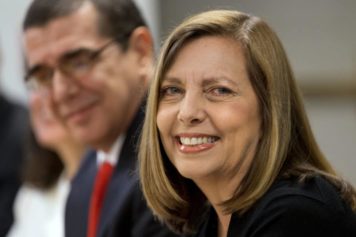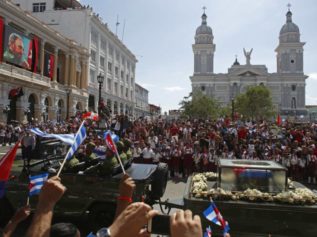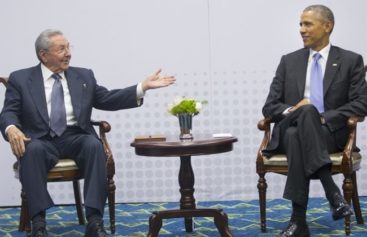WASHINGTON (AP) — The United States on Thursday renewed calls for the Cuban government to determine the source of health “attacks” on U.S. diplomats in Cuba that have affected some two dozen people.
At a senior-level meeting with Cuban officials in Washington, the State Department said it had again raised the issue, which has prompted a significant reduction in staffing at the U.S. Embassy in Havana. It reiterated “the urgent need to identify the source of the attacks on U.S. diplomats and to ensure they cease.”
“We also reiterated that until it is sufficiently safe to fully staff our embassy, we will not be able to provide regular visa services in Havana,” the department said in a statement.
Cuba has denied any knowledge of the source or cause of the incidents that have sickened at least 24 diplomats since late 2016, leaving some with brain damage. Two other diplomats suffering similar symptoms in Cuba were sent to medical specialists for evaluation, U.S. officials disclosed last week.
The potential new cases come as the U.S. has begun issuing health alerts to Americans in China after a worker at the U.S. Consulate in Guangzhou reported symptoms and strange sounds and was flown to the U.S. That worker was then medically confirmed to have “suffered a medical incident consistent with what other U.S. government personnel experienced in Havana, Cuba,” the department has said.
The confirmed Cuba patients have been found to have a range of symptoms and diagnoses including mild traumatic brain injury, also known as concussions. Unexplained sounds and vibrations that accompanied the symptoms initially led investigators to suspect a sonic weapon, though an interim FBI report in January said no evidence had been uncovered that sound waves could have damaged the Americans’ health, The Associated Press reported.
The department also voiced concern Thursday about the “arbitrary detention of independent journalists and human rights defenders” in Cuba.
The U.S. side in the talks was led by Deputy Assistant Secretary of State for Western Hemisphere Affairs John Creamer. Cuba’s side was led by Carlos Fernandez de Cossio, the Foreign Ministry’s director general for U.S. affairs.


